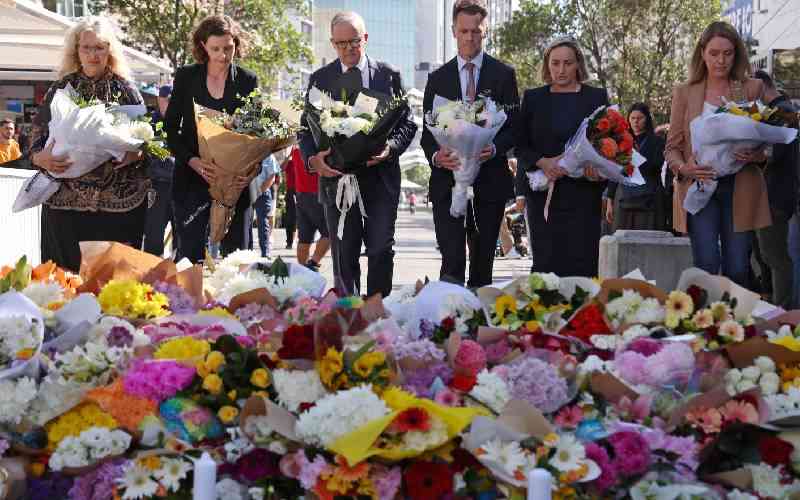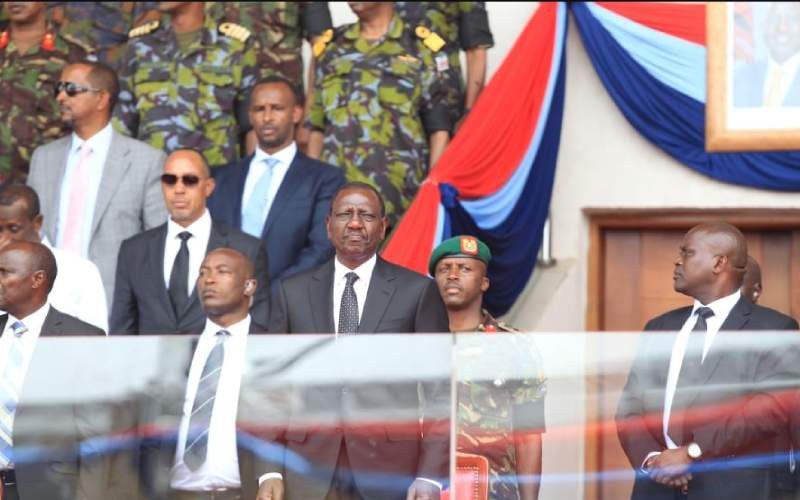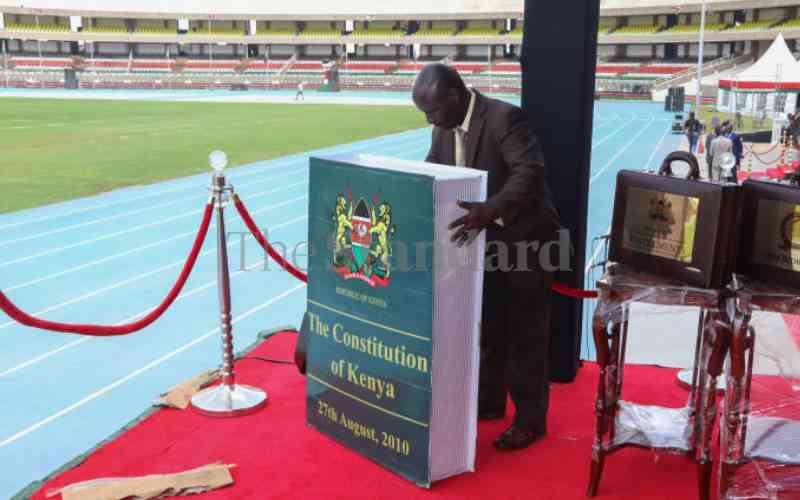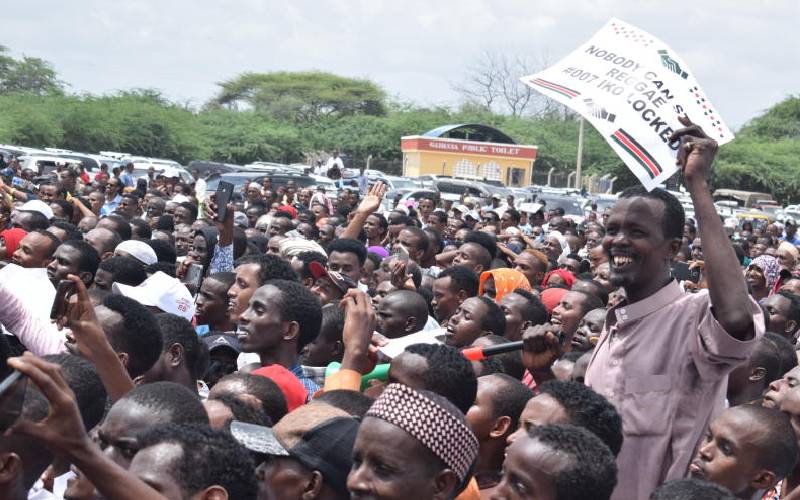
Have you ever felt like we elect bad, corrupt and self-seeking leaders because we have no other choice? Have you felt sickened by politics or resolved never to vote again because perhaps your vote never counts? Did you switch off from following political news because it simply sickens? Consequently, you, like me, probably opted to stay away from watching news and minding your business. This state of finding no meaning in what should ordinarily be of great meaning is called “living in bad faith”.
Living in “bad faith” is a statement by French existentialism philosopher Jean-Paul Sartre. In simple terms, it means refusing to accept the meaninglessness of things and therefore lying to ourselves in order to avoid short-term pain even when in the long-term, they will bring more pain and impoverishment.
In other words, living in bad faith is accepting “to move on” because it is easier. It is another form of burying our heads in the sand in the hope that the painful realities around us will somehow disappear by the time we unearth our heads. The operating principle is, “I am limited to the extent I can’t do it”. This lets us off the hook because it momentarily relieves us from the apparent suffering of facing the hard reality before us.
Again, have you ever wondered why political campaigns will run normally years before the legally acceptable campaign period yet, ironically, the very people aggressively campaigning are the same ones who should promote law and order? Who cares about law in this country if the top doesn’t? This is a complex example of living in bad faith.
There are very compelling reasons to believe we are living in bad faith. If you count the number of mega financial scandals that have been reported in the media or have been noted for action by the government, you are likely to feel helpless. The media shouts, we citizens shout, activists shout, the civil society shouts but, look, nothing happens. This is absurdity. Absurdity is looking for responsiveness where none exists.Most Kenyans live in bad faith. Breaking the law and politicians searching for power at the expense of law and order is nothing but nihilism – self annihilating. Living in bad faith means we support candidates so they can do the dirty job of getting us the benefits we are after.
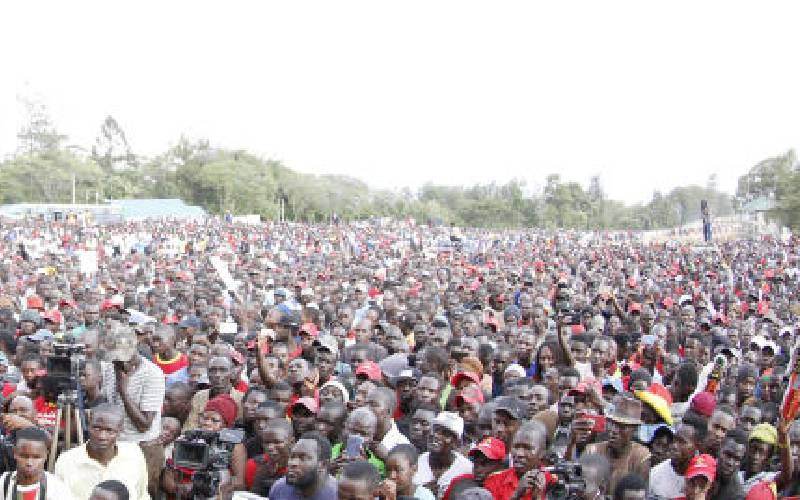
While we could achieve the same benefits by working out systems of governance that will provide for our dignity, we instead choose to play by presidential candidates (in particular) who will somehow “vanquish on our behalf the enemy who either holds the benefits we want or might take away the privileges we are enjoying”.
As Sartre would say, we are so scared of our own freedom to act meaningfully that we place ourselves in anguish. Why should a country have a huge national debt and pretend all is fine when in fact we know we don’t know how well the funds borrowed have been used? Why should so many graduates find themselves helpless when curbing corruption would improve the lives of so many of us? Why should we glorify people who have raped our environment, our very pillar of existence?
It is a big lie to say that we have a dearth of good leaders. Now that we are in a serious campaign mode for next year’s general election, we cannot escape responsibility by simply living in bad faith in the hope that good leaders will be elected or that there is nothing we can do since all candidates are evil anyway.
Voluntary slavery
We know the truth that many of the big names that saturate our news manipulate us with manifestos and promises that they and we know are false. Tragically, we support them.
Going this way means that our values as a people of one nation are turned upside down. But even more fundamentally, our values as human beings who inter-depend are so skewed to favour individuals who are at an advantage that the disadvantaged will stand only to gain tokens if they totally submit or, as they say, “lie low as an envelope”. Well, this is voluntary slavery in all but name.
From the foregoing, does it mean we should not support candidates or even campaign? Absolutely no! Our freedom to seek elective posts as candidates or supporters must be matched with radical responsibility to painfully choose long-term good over short-term relief.
We have ourselves, individually and collectively, to stubbornly ensure we do not impoverish our minds and pockets going forward by re-examining the meaning of emerging political allegiances in anticipation of the 2022 elections.
-Dr Mokua is executive director, Loyola Centre for Media and Communications
Stay informed. Subscribe to our newsletter
 The Standard Group Plc is a
multi-media organization with investments in media platforms spanning newspaper
print operations, television, radio broadcasting, digital and online services. The
Standard Group is recognized as a leading multi-media house in Kenya with a key
influence in matters of national and international interest.
The Standard Group Plc is a
multi-media organization with investments in media platforms spanning newspaper
print operations, television, radio broadcasting, digital and online services. The
Standard Group is recognized as a leading multi-media house in Kenya with a key
influence in matters of national and international interest.
 The Standard Group Plc is a
multi-media organization with investments in media platforms spanning newspaper
print operations, television, radio broadcasting, digital and online services. The
Standard Group is recognized as a leading multi-media house in Kenya with a key
influence in matters of national and international interest.
The Standard Group Plc is a
multi-media organization with investments in media platforms spanning newspaper
print operations, television, radio broadcasting, digital and online services. The
Standard Group is recognized as a leading multi-media house in Kenya with a key
influence in matters of national and international interest.



